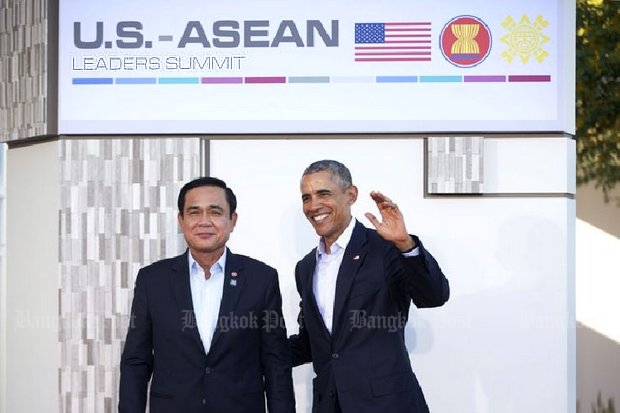
The government has hit back at the US State Department over criticism of the regime's order giving soldiers police-like powers to arrest and detain criminal suspects.
Katina Adams, the US State Department's spokeswoman for East Asian and Pacific Affairs, on Monday called on the Thai government to curb the military's policing role under the order issued on March 29.
"We continue to urge the government to limit the role of the military in internal policing and allow civilian authorities to carry out their duties," Ms Adams said.
Government spokesman Sansern Kaewkamnerd yesterday said the order is intended to allow soldiers to support police efforts to crack down on "mafia" and "influential criminal figures" more efficiently.

Suspects arrested will be handled according to the proper judicial procedures and the power to rule on their cases lies with the courts, Maj Gen Sansern said.
He urged the US State Department spokeswoman to study the order carefully before making any comments. Ill-judged remarks could cast the US in a bad light, Maj Gen Sansern said, adding the government is ready to provide correct information regarding the need to issue the order.
Maj Gen Sansern warned the US not to receive distorted information from "public relations companies" he alleged were hired by some groups with ill-intentions toward Thailand.
Soldiers from the rank of sub-lieutenant up have been given police powers to summon, arrest and detain suspects by an order under Section 44 of the interim charter issued on March 29.
They are also authorised to conduct searches, seize assets, suspend financial transactions and ban suspects from travelling.
Soldiers can search any property they believe is linked to suspects or their assets. The searches can be conducted on individuals and vehicles. Searches can also be conducted without warrants when there are grounds to believe that suspects could flee before a warrant is obtained.
The regime claimed a shortage of police officers was a key factor behind the decision, which prompted an outcry from human rights advocates.